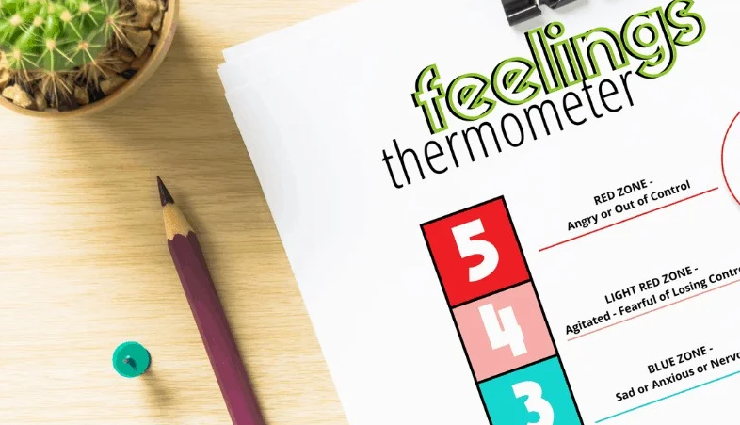- Home›
- Mates & Me›
- 5 Tips To Help You Deal With Tantrums Of Your Baby
5 Tips To Help You Deal With Tantrums Of Your Baby
By: Priyanka Maheshwari Sun, 07 Jan 2024 1:57:50

Anger is a universal emotion that we all encounter occasionally. Nevertheless, it can pose a greater challenge for our children in handling their anger and frustration. Understanding their negative emotions might be a frequent struggle for them, resulting in unnecessary tantrums. Fortunately, there is positive news! As parents, you have the ability to assist them in navigating their emotions and offering guidance during unpleasant situations. Here, we've outlined five methods through which you can aid your children in recognizing their negative emotions and effectively managing them.

# Have A Feelings Thermometer
Children lack extensive experience in handling their emotions, and as they are still in the process of learning how to manage negative feelings, they often express themselves through tantrums. As a parent, you can aid your child in recognizing and understanding their emotions by introducing an "intensity of anger thermometer." This tool enables young children and toddlers to identify the early signs of anger, preventing it from escalating into a full-fledged tantrum.
To implement this technique, create a large thermometer on a piece of paper, and mark numbers from 0 to 5 in ascending order, with 0 at the bottom. Each number on the scale can be associated with a specific emotion, such as calmness for 1 and intense fury for 5. The numbers in between can represent intermediate stages like feeling bothered, angry, or frustrated. Adding colors to differentiate each stage can enhance the effectiveness of this visual aid.

# Help Your Kids Identify Their Emotions Better
It is essential for your child to be able to identify and understand their various emotions. Failing to recognize their feelings can lead to confusion and frustration, ultimately resulting in undesirable behavior. Enhance your children's emotional awareness by enriching their vocabulary and teaching them about negative emotions. Begin with fundamental emotions like happiness, sadness, anger, and frustration. Providing them with words to articulate their experiences will facilitate more effective communication of their feelings. Additionally, using pictures and stories can aid in identifying different emotions. Another helpful method to encourage your child to express their emotions is through interactive games, such as "I feel...because of...."
# Help Kids Figure Out The Reason Behind Their Emotions
Encourage your child to understand that posing questions is a valuable approach to navigating their emotions. Advise them to inquire about the reasons behind their feelings, such as asking, "Why am I feeling angry?" or "What is causing me to feel sad?" This process can unveil the underlying reasons for their emotions. Discovering answers to such questions enables them to gain deeper insights into themselves and their emotional states. Engaging in internal dialogues is crucial for effective emotional management and contributes to your child's emotional growth.

# Normalize Every Emotion
Children might experience fear when confronted with strong emotions like anger and sadness. Assure them that it is perfectly normal to feel these emotions and share with them that even as adults, you also experience similar feelings occasionally. Explain that feelings of anger or frustration often signal that something is not right in the body. Providing this understanding will help them feel more comfortable in such situations. Engaging in a conversation with your child about the acceptability of feeling frustrated will empower them to manage these emotions more effectively in the future.
# Foster Empathy
While it is crucial to impart knowledge about negative emotions to children, it's equally important to ensure that their anger doesn't hinder their ability to think rationally. As parents, encourage your child periodically to consider a situation from a different perspective by fostering empathy. If your child is unwilling to discuss their emotions, prompt them to imagine how their favorite character might respond in a similar situation. This approach can assist them in understanding their feelings and identifying the underlying issue. Cultivating empathy at a young age is vital for shaping your child's character and fostering their personal growth.





